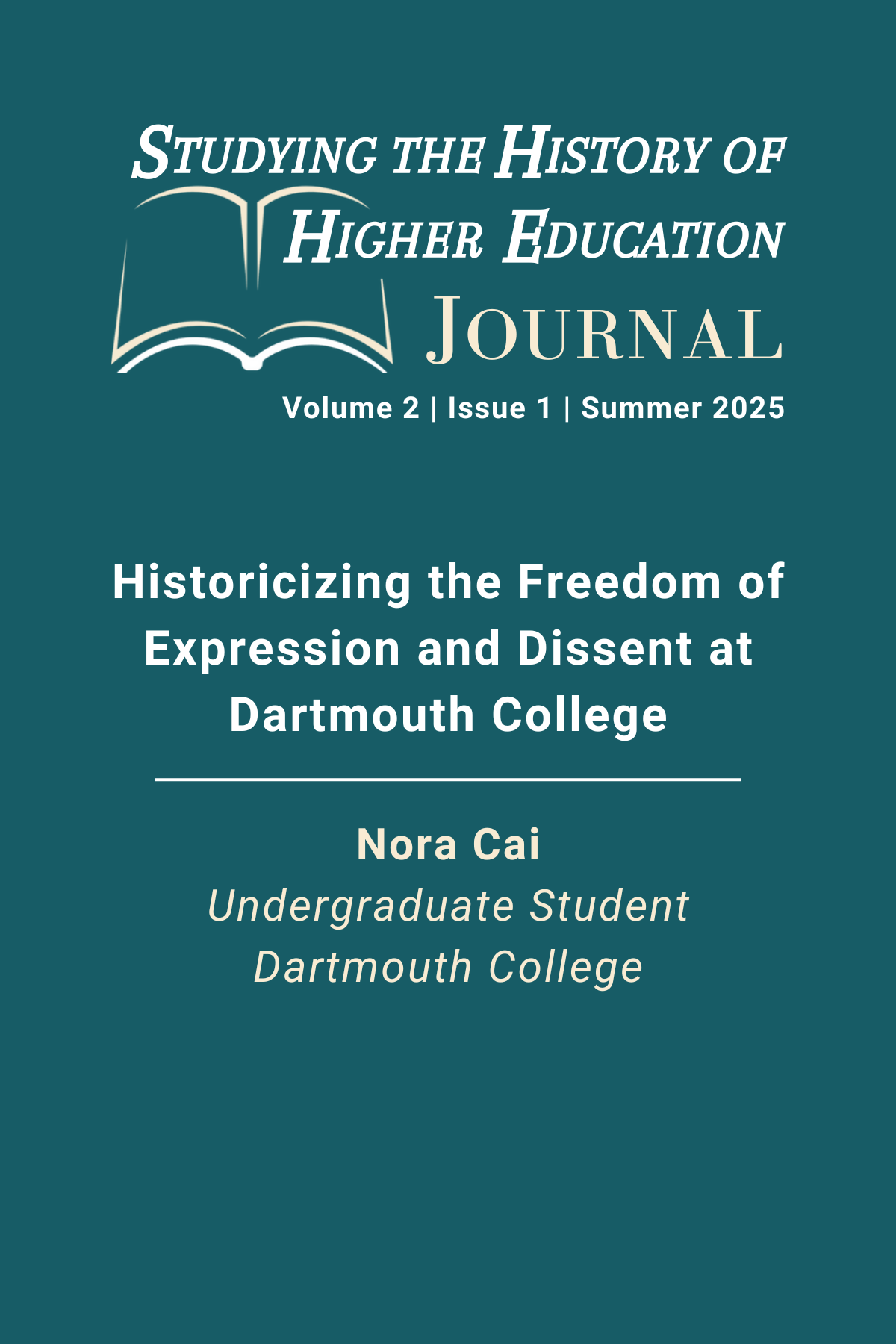Historicizing the Freedom of Expression and Dissent at Dartmouth College
Keywords:
freedom of expression, dissent, campus protests, college policies, Dartmouth College, student activism, free speech, disciplinary powerAbstract
For decades since the 1960s, student-led movements on college campuses have spearheaded political change across the nation. At the same time, college administrations have developed a web of speech and conduct policies, adorned with increasingly hefty specifications for permissible campus protest. This article studies the origins and developments of one such set of policies at Dartmouth College, including the Freedom of Expression and Dissent (FED) policy and its associated conduct regulations. These policies found their genesis in three pivotal periods of protest at Dartmouth: the George Wallace protests of the early to mid-1960s, the anti-Vietnam war movement in the late 1960s, and the anti-apartheid protests of the mid- to late 1980s. Through analyzing the historical causes, revisions, and applications of the FED policy and its associated conduct regulations, I argue that these policies were developed not to protect free expression and dissent, but to prevent such expression from disrupting the college administration’s desired social order. The FED policy serves the counterinsurgent function of symbolically affirming free expression and dissent, while its accompanying conduct regulations work in conjunction to control dissent’s impactfulness.

Downloads
Published
Issue
Section
License
Copyright (c) 2025 Studying the History of Higher Education Journal

This work is licensed under a Creative Commons Attribution 4.0 International License.


